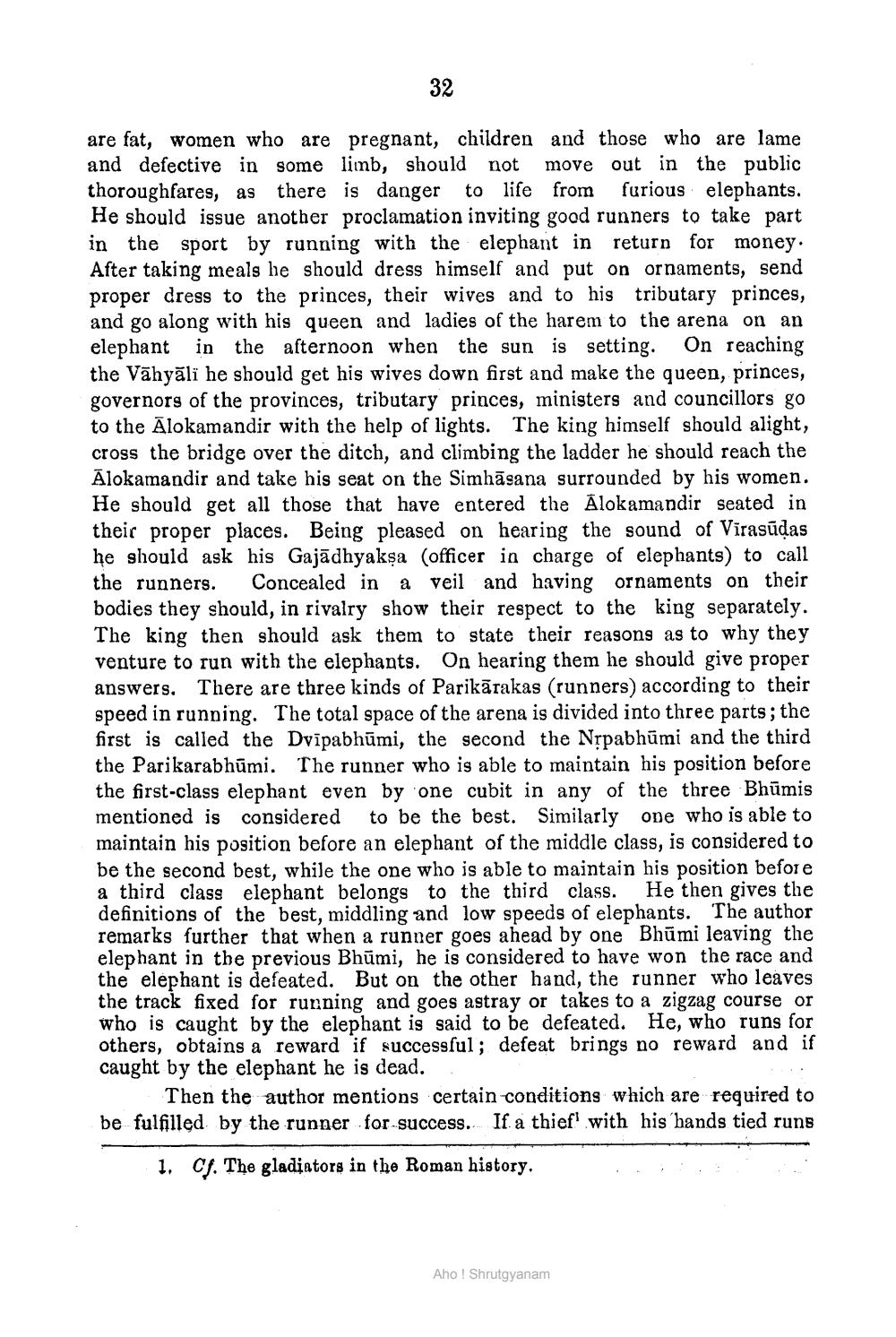________________
32
are fat, women who are pregnant, children and those who are lame and defective in some limb, should not move out in the public thoroughfares, as there is danger to life from furious elephants. He should issue another proclamation inviting good runners to take part in the sport by running with the elephant in return for money. After taking meals he should dress himself and put on ornaments, send proper dress to the princes, their wives and to his tributary princes, and go along with his queen and ladies of the harem to the arena on an elephant in the afternoon when the sun is setting. On reaching the Vāhyāli he should get his wives down first and make the queen, princes, governors of the provinces, tributary princes, ministers and councillors go to the Alokamandir with the help of lights. The king himself should alight, cross the bridge over the ditch, and climbing the ladder he should reach the Alokamandir and take his seat on the Simhasana surrounded by his women. He should get all those that have entered the Alokamandir seated in their proper places. Being pleased on hearing the sound of Virasudas he should ask his Gajadhyaksa (officer in charge of elephants) to call the runners. Concealed in a veil and having ornaments on their bodies they should, in rivalry show their respect to the king separately. The king then should ask them to state their reasons as to why they venture to run with the elephants. On hearing them he should give proper answers. There are three kinds of Parikarakas (runners) according to their speed in running. The total space of the arena is divided into three parts; the first is called the Dvipabhūmi, the second the Nṛpabhūmi and the third the Parikarabhūmi. The runner who is able to maintain his position before the first-class elephant even by one cubit in any of the three Bhumis mentioned is considered to be the best. Similarly one who is able to maintain his position before an elephant of the middle class, is considered to be the second best, while the one who is able to maintain his position before a third class elephant belongs to the third class. He then gives the definitions of the best, middling and low speeds of elephants. The author remarks further that when a runner goes ahead by one Bhumi leaving the elephant in the previous Bhumi, he is considered to have won the race and the elephant is defeated. But on the other hand, the runner who leaves the track fixed for running and goes astray or takes to a zigzag course or who is caught by the elephant is said to be defeated. He, who runs for others, obtains a reward if successful; defeat brings no reward and if caught by the elephant he is dead.
Then the author mentions certain conditions which are required to be fulfilled by the runner for success. If a thief with his hands tied runs
1. Cf. The gladiators in the Roman history.
Aho! Shrutgyanam




